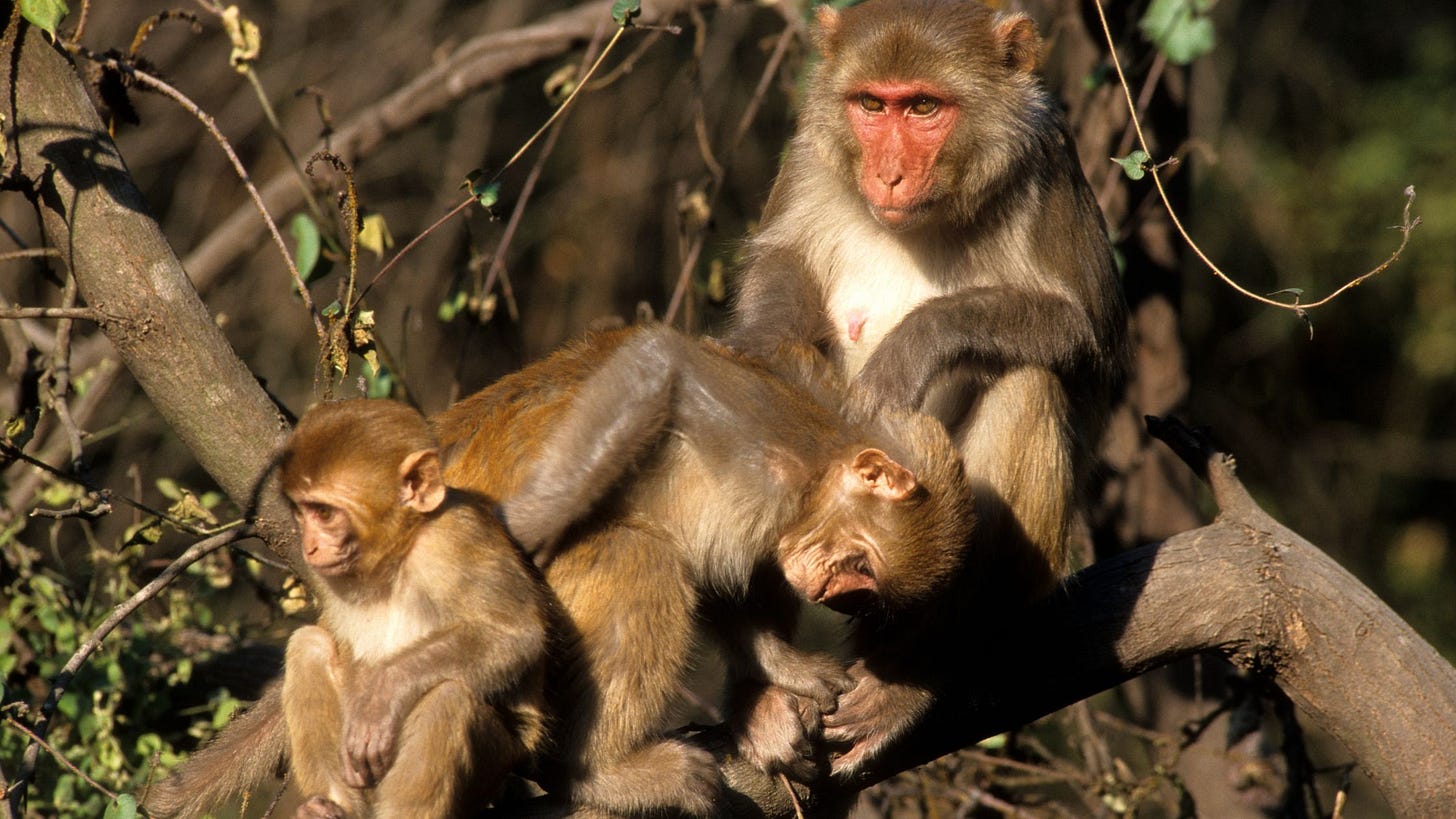What We Can Learn from Macaques
Last week, I was making dinner and a story on NPR caught my ear. It was about how 2017’s Hurricane Maria completely altered the society of rhesus macaques that inhabited a tiny island offshore of Puerto Rico, Cayo Santiago. “They're notoriously competitive in the way of, I form alliances with, you know, a small number of members of my group, and we go after what we want,” behavior ecologist Lauren Brent told reporter Ari Daniel in the story.
Sounds quite a lot like us humans and capitalism, I thought. Notoriously competitive, small alliances, uncanny.
But when Hurricane Maria ripped through, it tore out so much of the tree cover, while miraculously most of the 1,800 macaques survived. What this meant was way less shade for a whole lot of macaques. Scientists set out to study what happened and over the course of the five years post-hurricane, they found that instead of keeping to those small alliances, the macaques amiably shared shade space with any of the macaques. One of the most interesting observations, though, was that the macaques weren’t fighting over the shade as they likely would have prior to the hurricane. In fact, they found that aggression levels in general dropped significantly.
“And get this” says Daniel in the report. “The macaques who had more social partners on average, which meant more shade access - they were 42% less likely to die.”
By this part of the story I was rapt. All I could think about was holy shit, this feels like we humans could learn from this. None of the story related any of the findings to our human situation, rather it went on to talk more generally about how species, in this case primates, were adapting to a quickly changing climate and the general plasticity of their adaptability.
This reminded me of the idea of “disaster utopias” that Rebecca Solnit writes about in A Paradise Built in Hell. It’s those times when people come together in community to help one another, to work together for survival and connection in the immediate aftermath of a disaster. “[I]n disaster people come together, and though some fear this gathering as a mob, many cherish it as an experience of a civil society that is close enough to paradise,” she writes.
And while the macaques aren’t necessarily ascribing a kind of emotion of joy with the experience, they are following their instinct to do what is better for their own survival. And in this case, that is social connection. Interestingly, that’s the same thing for humans. I’ve talked with disaster researcher and director of the Security and Resilience Studies Program at Northeastern University, Daniel Aldrich about this. He consistently finds in his research that social connection and social capital between and among people make them more resilient in the aftermath of a disaster. They will be more likely to thrive.
As such, it seems like the disaster utopias Solnit writes of are our natural instinct. That is our true nature, be it for our own survival or the survival of all people and the planet. What Solnit also shows in A Paradise Built in Hell is that the fear of mobs and destruction and people taking advantage of disaster is not natural. It’s manufactured usually by the people with means, politicians, and the people who eagerly take in the fear-mongering. That’s our history born of capitalism and racism that has created those circumstances.
And so, I wonder if we really should think about those macaques in the face of disaster. Can we be more like them? And what I mean is to lean into our instincts for social connection in order to adapt to a changing climate. If we did that instead of following the old adage “divide and conquer,” we’d be a lot better off.



